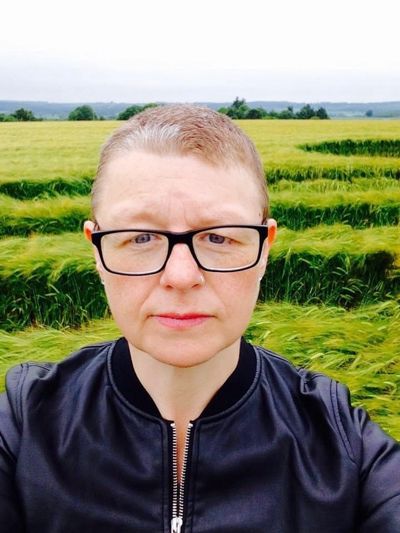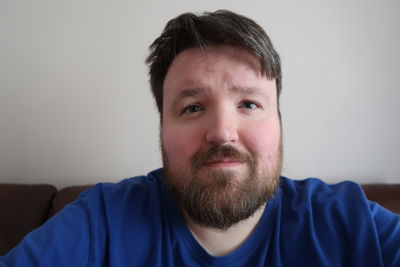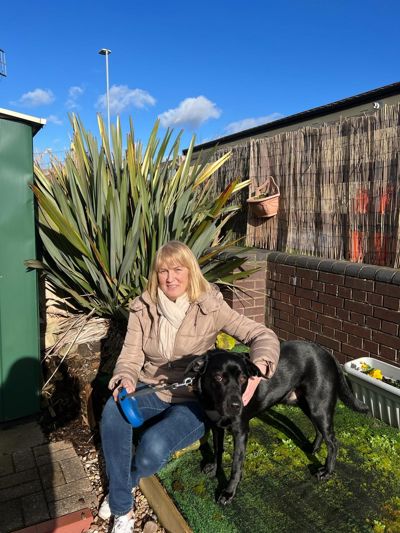“It took me four decades to find out for sure” – Lucy’s story
27/08/2024
After forty years of experiencing the condition, Lucy was finally diagnosed with autism. She reflects on her neurodivergence, social anxiety and involvement with our Wiltshire Inclusion Service.
I was born in 1973. Then, autism wasn’t even “a thing”. It was certainly not widely known.
Of course it WAS, but like mathematics or sacred geometry, it hadn’t been discovered. We’re only at the beginning of understanding what it actually IS. What we do know already though, is how massive an impact it has on those living with it and the people around them.
If my childhood hadn’t been unusual, I’d have recognised that I was “different” far earlier. Because “different” was the norm in our household, it took me four decades to find out for sure. Our unusual nurturing was instigated by our father. We had no telephone, no one was allowed over to play and we kept to our own company. We were taught that friends weren’t needed, and family was all.
Dad liked working as a police driver - it was solitary, on his own terms. On the rare occasion when he was invited to the pub after work, he’d refuse because “coworkers see him all day, why would he want to see them all evening?!” It is now painfully clear that our father was autistic but oblivious to it. Dad never considered it important to be tested, but I absolutely did. I had too many unanswered questions.
-
I was anxious; petrified of social interactions, like parties and gatherings.
In my teenage years, I developed something of a social life, but even then I’d dress in unusual styles, dictated by the bands I was obsessed with. These obsessions were intense; almost focused distractions from how I felt inside. My wayward clothes were as much of a cloak as a fashion statement or an act of rebellion.
I WAS rebelling in a way, but only against my frustration and inability to understand how I wasn’t like “normal people”. With hindsight, I see that cultural obsessions and such diversions are classic manifestations of autism.
I’ve always considered I have quite a male brain - I’ve never been terribly good with make-up and fashion. I guess this is just part of my neurodiversity. I tried to conform and failed to fit in. Once I accepted my reluctance in such manners, I went all in and decided to shave my hair short, to take the most comfortable option at all times.
I now realise my attire was part of ‘masking’ - a coping mechanism whereby I was playing a part that was itself a paradox. I dressed unusually whilst trying to act like “ordinary people”. It was only cosmetic, as I’m unable to react to social cues.
-
I realise now how harsh I was on myself in the past, seeing my inabilities as faults in my personality.
Pretending to be someone else was my default setting, but it was exhausting. “Conventional” behaviour in public situations, as basic as shopping transactions and casual conversations, was daunting, overwhelming and exhausting. I was anxious; petrified of social interactions, like parties and gatherings, which I’d often self-medicate with alcohol to endure.
From 17, I’d been pushed from pillar to post with one session after another - youth counselling, group counselling, CBT (cognitive behavioural therapy), even art therapy - and on drug after drug - antidepressants, antipsychotics, sleeping pills.
I had a GP who first put two and two together, and I shall always be grateful to her. My doctor encouraged a referral to a diagnostic clinic, where specialists would decide on treatment and assessment. Disappointingly, I was told I wouldn’t be seen because “if I’d coped this long, then I should just keep on doing what I was doing”. This was like a new optical breakthrough being denied to the partially sighted because they were now used to not seeing properly.
My doctor was the first to suggest that this wasn’t really controllable with pills, but with time, perseverance and acceptance. I realise now how harsh I was on myself in the past, seeing my inabilities as faults in my personality, kicking myself for not being able to make and keep friends.
-
I’m happy to embrace who I am and celebrate my unique qualities.
Now I handle life very differently. I know my limits and won’t place myself in uncomfortable situations just because I think that’s what’s expected of me. I’m also okay with talking about my autism. It’s what makes me… me. Why hide it?
In Wiltshire, I have the opportunity to connect with community support. Being a part of Rethink Mental Illness’ Social Inclusion Service means there’s always a place I can go, to share other people’s experiences and stories.
My inclusion coach, Jackie, always finds time to discuss, one to one, what I need and what’s available, like courses I can take part in and safe spaces, such as the Happy Café, where I can choose to participate as much or as little as I feel able to, with no pressure or commitment. Everything is handled with a great amount of empathy and sensitivity, for which I’m very grateful.
Some days are always tougher than others. It is good to focus on the little things that make you happy. For me, it is time spent with my husband and Daisy, my rescue dog, who is my best friend and constant companion. I love art, art history, film and music, which has always been a big part of my life. Most of all, I’m happy to embrace who I am and celebrate my unique qualities.



